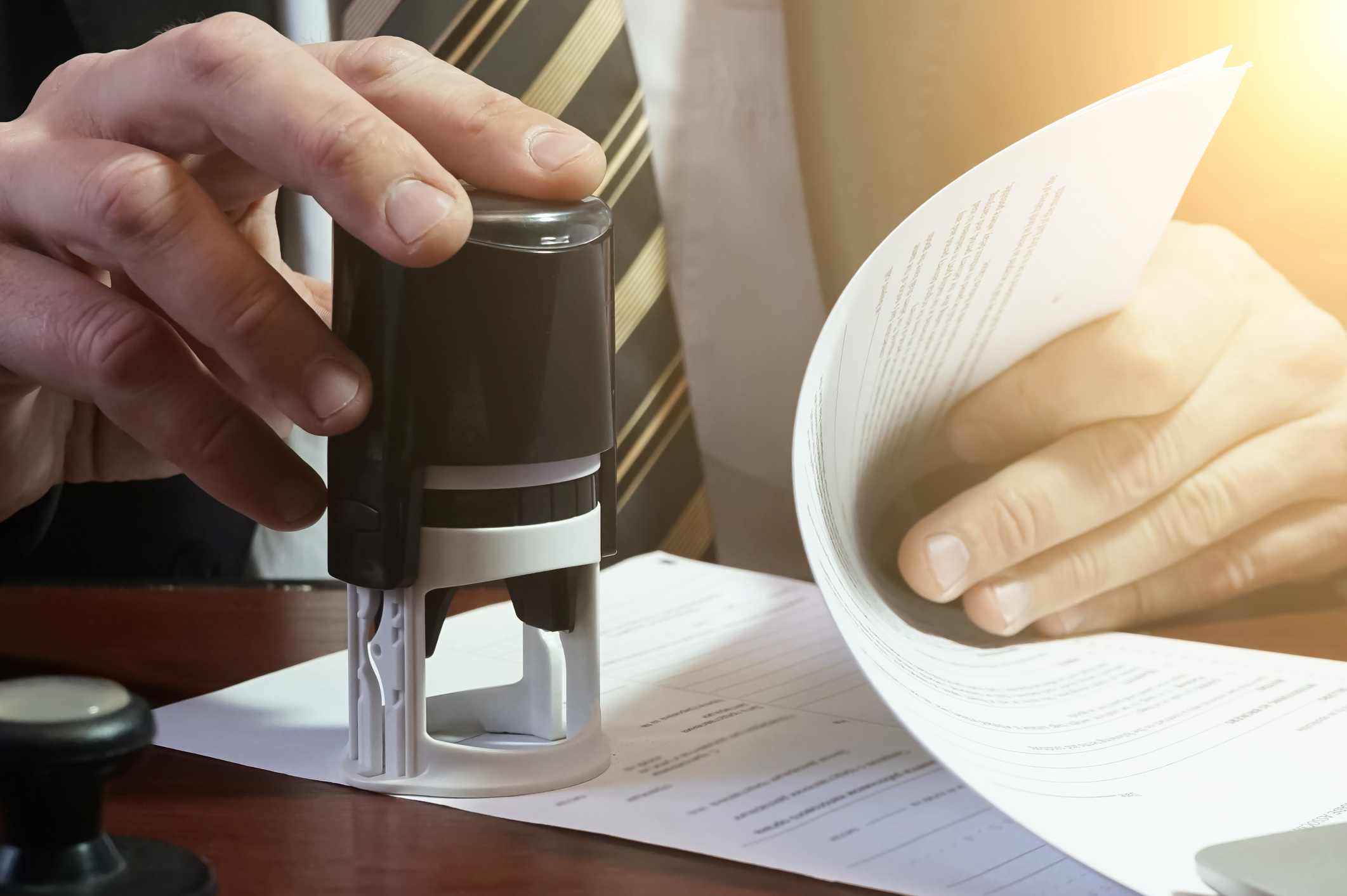
Don’t be a copycat.
You’re probably already familiar with the concept of copyright. But understanding the nuances can be tricky sometimes. What is the difference between a trademark and copyright? What does a creator need to do in order to protect their work?
| Tip: Make sure you understand the difference of a trademark vs copyright. |
We’ve seen what happens when ignoring copyright goes horribly wrong. Just last month UK based band ‘The Verve’ was finally giving the royalties and songwriting credit to their song ‘Bittersweet Symphony’ after a copyright ruling went against them more than two decades ago.
But famous songwriters aren’t the only people who can be hit with copyright infringement claims. If you’re looking to borrow, use, or repurpose something that another person created, you need to familiarize yourself with UK copyright law.
|
Looking for specific information about UK copyright law? Click the links below to jump ahead:
|
In the UK, copyright falls under the Copyright, Designs and Patents Act of 1988. Copyright is the exclusive legal right given to a creator upon the conception of their work. It usually covers things such as novels, music, movies, art, photography, etc.
In the UK, copyright is considered intangible property. That means that a person or corporation can have ownership of something that has no physical substance. For example, corporate brand identity or intellectual property falls under UK copyright the same way a novel or a movie might.
Copyright protects your work by stopping others from using it without your permission. It gives the creator of a work or piece of intellectual property the final say in how their work is used by others.
|
Copyright prevents people from:
|
When you create something you are given the legal right to decide how your creation is printed, performed, filmed, or distributed. The law protects your creation from being used without your express permission.
Similarly to the United States, you don’t have to apply for copyright when you create something. Copyright automatically goes into effect when a new work is created. The creator does not have to file any forms with the government to register their work.
For those more cautious creators, there is a process in place for registering your work through the UK copyright service. Registering your work with the UK copyright service doesn’t provide creators with any additional protections. However, it does provide a documented step to create evidence of an original work that could be useful for future disputes or legal cases.
So, if you’ve written a particularly incredible original screenplay, it might not hurt to register it with the UK copyright service before optioning it for a movie.
Copyright laws in the UK are very specific about the length of time copyright is valid. According to the copyright terms of protection, different types of materials have different copyright protections.
We’ve created a handy overview of different types of work and the length copyright lasts for each:
| Type of Work | How long does the copyright last? |
| Written, dramatic, musical, or artistic work | The entirety of the creators life, plus 70 years after the creators death |
| Sound and music recordings | 70 years after it was first published |
| Films | The entirety of the creators life, plus 70 years after the creators death |
| Broadcasts | 50 years after it was first broadcast |
| Published editions of written, dramatic, or musical works | 25 years after it was first published |
Once a copyright protection expires the work typically falls into the public domain. That means that the work becomes public property and may be used freely by all members of the public. It should be noted that different countries have different laws about copyright expiration and use of public domain material. Always check with your local and federal laws before you attempt to use another's work.
There are some situations in which you do not need express permission to use copyright material. Fair usage, also known as fair dealing in the UK, is one such situation. Fair usage is any copying of copyrighted material used in a limited and “transformative” purpose. It’s often used as a way to comment on, criticize, or parody a copyrighted work.
In the UK, fair usage is covered by sections 29 and 30 of the Copyright, Designs and Patents Act 1988. In order to qualify for fair usage claims in the UK, your use of a copyrighted work must fall under one of the following three situations:
|
When can you claim fair usage for a UK copyright?
|
Even though fair usage is perfectly legal, it’s oftentimes a grey area when it comes to UK copyright law. There is no standard for what qualifies as fair use and what doesn’t. If you’re looking for some guidelines on when fair usage might apply, the Intellectual Property Office outlines two criteria that are often cited when ruling on fair usage cases:
|
What are the criteria for qualifying for fair usage laws?
|
If the usage of copyright material is deemed to have caused the creator or owner of a copyright potential revenue or its deemed that too much of the original work was used, it's likely to be deemed unfair use.
Every claim of fair use can be subject to interpretation. If you decide to use copyrighted material and plan on claiming fair usage, you should be prepared to state your case.
As we’ve mentioned before, the copyright belongs to the creator. That means that the creator is allowed free-reign over who is allowed to use their material.
A perfect example of this came earlier this week when Rob McElhenney, executive producer and creator of popular television sitcom ‘It’s Always Sunny In Philadelphia’ gave a teenager permission to use the rights to perform Day Man, a musical created within the show.
You don’t need to rent anything. Just do it. If the Hollywood police come for you hit me up and I’ll handle it. https://t.co/pbSxUISyPW
— Rob McElhenney (@RMcElhenney) June 20, 2019
In most cases, the best place to start when you want to use copyrighted material is by asking the creator themselves. Most creators have a permissions department or team that will handle these requests. Oftentimes, they know the correct copyright clearances that required for copyright usage.
| Tip: If you’re interested in learning more about the in-depth process for applying for copyright usage, you can visit the UK copyright service website for more information. |
Yes, you cannot use copyright material without permission in the UK, except in cases of fair usage. Copyright infringement can lead to fines, penalties, and in some cases even jail time.
|
Copyright infringement occurs when any of the following are done without the express permission of the holder of a copyright:
|
If you’re convicted of copyright infringement you can be subject to maximum penalties of up to 6 months and/or a fine of up to £50,000.
Due to the difference in government regulations between nations, copyright law has the most restrictions when it comes to sharing between nations. In 2015, a solution to this problem was offered in the form of the Digital Single Market.
The Digital Single Market aims to address these issues be reforming European copyright law, reviewing the rules for audiovisual media, geo-blocking, reforming EU telecom rules, regulations on the handling of personal data, and building a data-driven economy.
If the UK follows-through with their plan to leave and does not reach an agreement with the EU, they will not be included in the benefits extended to other countries in the EU. This will make doing business in the digital economy more difficult for those in the UK.
Congratulations, now you know everything you need to about UK copyright law. The changing tech landscape has changed copyright a lot over the last decade and this trend shows no signs of stopping. So it’s more important than ever to double check the copyright laws in your country.
|
Interested in learning more about the UK? Check out our list of the top UK Tech Companies in 2019. |
Lauren Pope is a former content marketer at G2. You can find her work featured on CNBC, Yahoo! Finance, the G2 Learning Hub, and other sites. In her free time, Lauren enjoys watching true crime shows and singing karaoke. (she/her/hers)
We’ve all been there. A situation at work arises and the action your management or the HR...
 by Lauren Pope
by Lauren Pope
Terms, conditions, rules, regulations, contracts, agreements, obligations.
 by Mary Clare Novak
by Mary Clare Novak
How do you make your prospective customers stop and pay attention to what your brand has got...
 by James Riddle
by James Riddle
We’ve all been there. A situation at work arises and the action your management or the HR...
 by Lauren Pope
by Lauren Pope
Terms, conditions, rules, regulations, contracts, agreements, obligations.
 by Mary Clare Novak
by Mary Clare Novak


